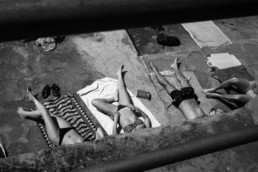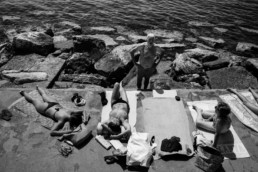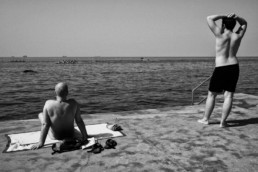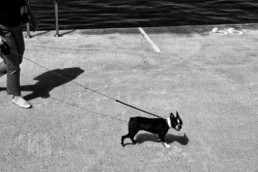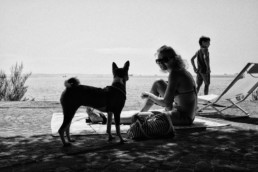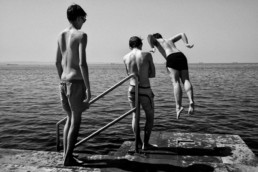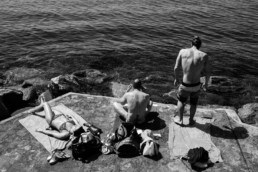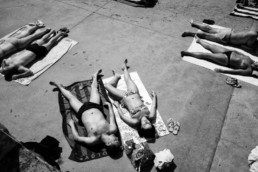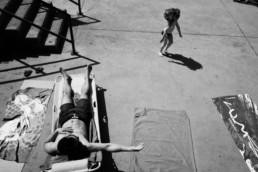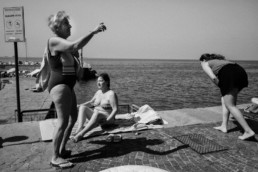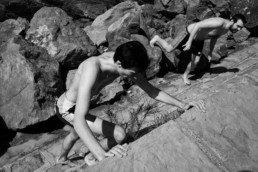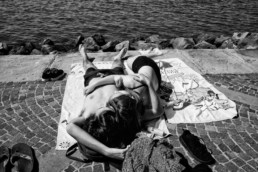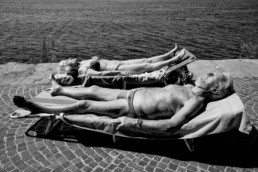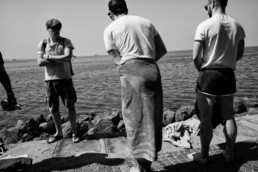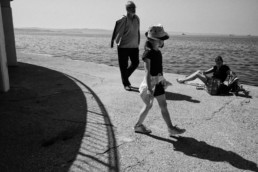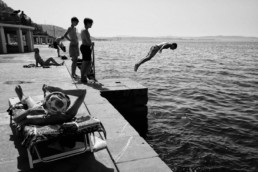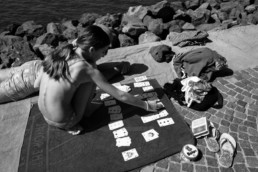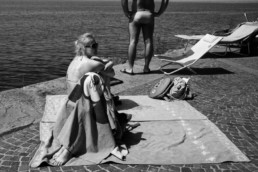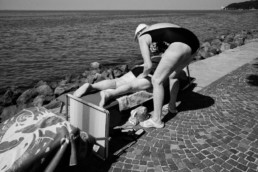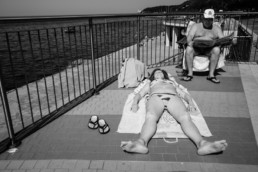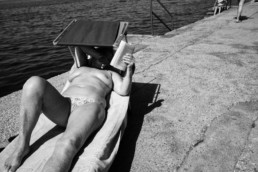mira-mare
mira-mare: il nome di un lavoro che ha il sapore di uno stabilimento balneare degli anni 60, un nome che sa di ombrelloni, di sabbia che scotta, di costumi a righe, di Rimini e di quelle vacanze un po’ retro, con le partenze intelligenti e il portapacchi pieno sulla 127.
In realtà nello stabilimento virtuale di Ilaria di sabbia non ce n’è, e nessuno ha il coraggio o la voglia di bagnarsi davvero, nelle acque dell’Esistenza: si preferisce la confortante rigidità del cemento o la dura fermezza degli scogli all’imprevedibilità mutevole delle maree.
Fermi nel momento di tuffarsi solo due ragazzini. Gli unici adulti che si avvicinano all’acqua dell’ignoto lo fanno corazzati dalla muta degli anni, ben protetti dalle delusioni dagli scafandri che non hanno mancato di portare con sé.
Mira-mare è fatto di contrasti: i pochi che “ammirano” davvero il mare lo fanno con malinconia, e sembrano isolati, staccati dal contesto.
Tutti gli altri sono affaccendati in altro: la contemplazione e la meditazione sull’Esistenza non sono più il regalo della saggezza, ma diventano l’eccezione e solo l’innocenza, ancora non plasmata dai dolori degli anni, si tuffa di testa. Unici sprazzi di reale vitalità nel bianco e nero di tutto il lavoro. Per tutti gli altri, ormai cresciuti, rimangono la pigra stasi, le carte o i libri.
Fabiana Rosa
___
mira-mare
mira-mare: the name of a work tasting of a beach club of the 60s, smelling of umbrellas, hot sand, striped swimsuits, Rimini and those retro-holidays, with smart starts and the luggage rack full on Fiat 127.
Really, in the Ilaria’s virtual beach club there’s no sand, and no one has the courage or really wants to dive in the waters of Life: the comforting rigidity of the cement or the hard firmness of the rocks to the changing unpredictability of the tides, are preferred.
Only two boys are stuck in the moment of diving. The only adults who approach the water of the unknown, they do it armored by the suit of the years, well protected from disappointments by the diving suits that they brought along.
Mira-mare is made of contrasts: the few that “really” admire the sea, they do with melancholy, and they seem isolated, detached from the context.
All the others are busy in other things: contemplation and meditation on Existence are no longer the gift of wisdom but become the exception, and only innocence, still not shaped by the pain of the years, dives head first. The only flashes of real vitality in the black and white of all work. For all the others, by now grown up, the lazy stasis, the papers or the books remain.
Fabiana Rosa

